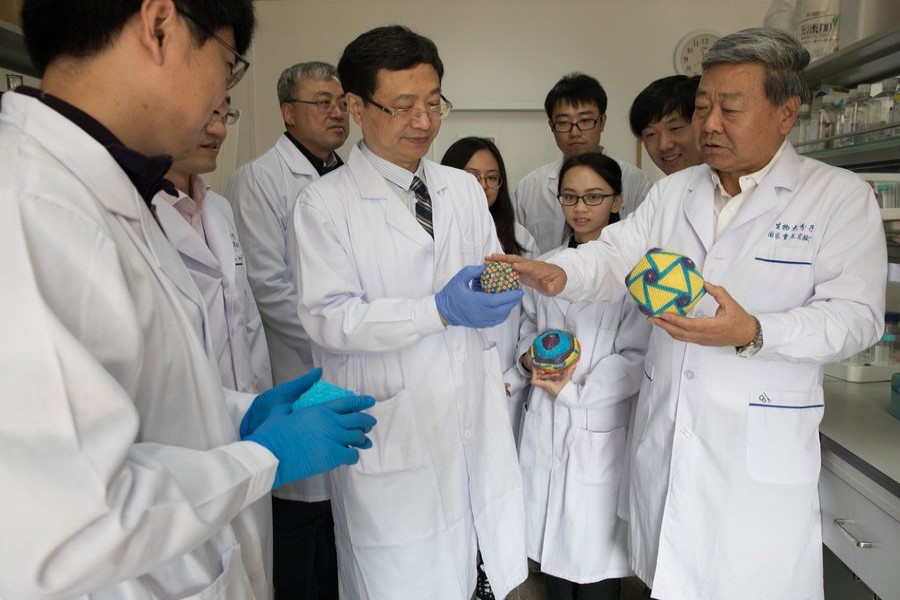Chinese scientists have modeled the three-dimensional structure of African swine fever virus, laying a solid foundation for developing effective and safe vaccines against the disease.
The research, jointly conducted by scientists at the Institute of Biophysics of the Chinese Academy of Sciences and the Harbin Veterinary Research Institute of the Chinese Academy of Agricultural Sciences, was published in the latest issue of the academic journal Science.
Scientists successfully isolated the epidemic strain of the African swine fever virus infecting pigs across the country. It took the research team four months to collect over 100 TB of high-quality data.
The research showed the virus has a unique five-layer structure: the outer membrane, capsid, double-layer inner membrane, core shell and genome.
It contains more than 30,000 protein sub-units, which form a spherical particle with a diameter of about 260 nanometers.
The study identified the structural proteins of the virus, revealing potential protective antigens and key information on the epitope, the part of an antigen molecule that an antibody attaches to.
The research also showed the complex arrangement and interaction mode of the structural proteins, and proposed the possible assembly mechanism of the virus, providing an important clue as to how it invades host cells and evades and antagonizes a host's antiviral immunity.


